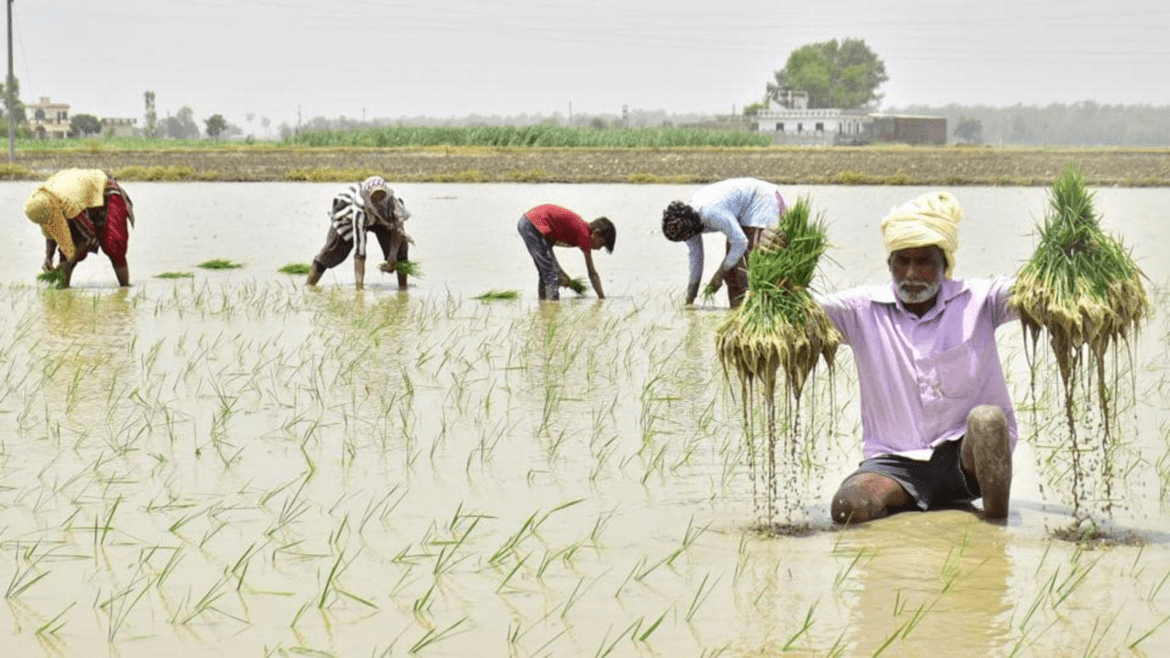AI Generated Summary
- In the aftermath of the recent floods, farmers in the region are grappling with the daunting task of acquiring paddy saplings at exorbitant prices, resorting to sourcing them from distant locations such as Haryana and even Rajasthan.
- Gurdeep Singh, a resident of Untsar village, shared his experience, stating, “I traveled to Haryana, Rajasthan, and UP to procure paddy saplings for my 40-acre farm.
- I managed to acquire them at a cost of Rs 3,500 per acre.
In the aftermath of the recent floods, farmers in the region are grappling with the daunting task of acquiring paddy saplings at exorbitant prices, resorting to sourcing them from distant locations such as Haryana and even Rajasthan.
The receding floodwaters have left behind extensive silt deposits, rendering the preparation of nurseries and sowing of paddy virtually impossible. Consequently, farmers have been compelled to embark on arduous journeys in search of paddy saplings. However, those whose fields remain submerged in areas like Samana, Shutrana, Mansa, and Sardulgarh now find themselves racing against time to sow their paddy crops.
Farmers lament that sowing paddy in August will yield subpar results, resulting in doubled input costs. Gurdeep Singh, a resident of Untsar village, shared his experience, stating, “I traveled to Haryana, Rajasthan, and UP to procure paddy saplings for my 40-acre farm. I managed to acquire them at a cost of Rs 3,500 per acre. Now, the cost of labor will also increase. Anything sown after July 30 will be a wastage of resources.”
Labh Singh, hailing from Ghanaur village, managed to purchase paddy saplings from Rohtak. He expressed his predicament, saying, “My fields are filled with silt. Despite utilizing two tractors and employing six workers, I can only clear less than five acres. Anything sown after the next two weeks will not produce a satisfactory yield.”
While some generous farmers have selflessly provided their surplus paddy saplings to their fellow farmers affected by the floods, others have been charging prices exceeding Rs 3,000.
Sardara Singh Johl, an agricultural economist, offered his advice to the farmers, stating, “I urge farmers to ensure paddy transplantation takes place within this week, or alternatively, refrain from sowing altogether. Any further delays will only exacerbate the losses incurred by the farmers.”




